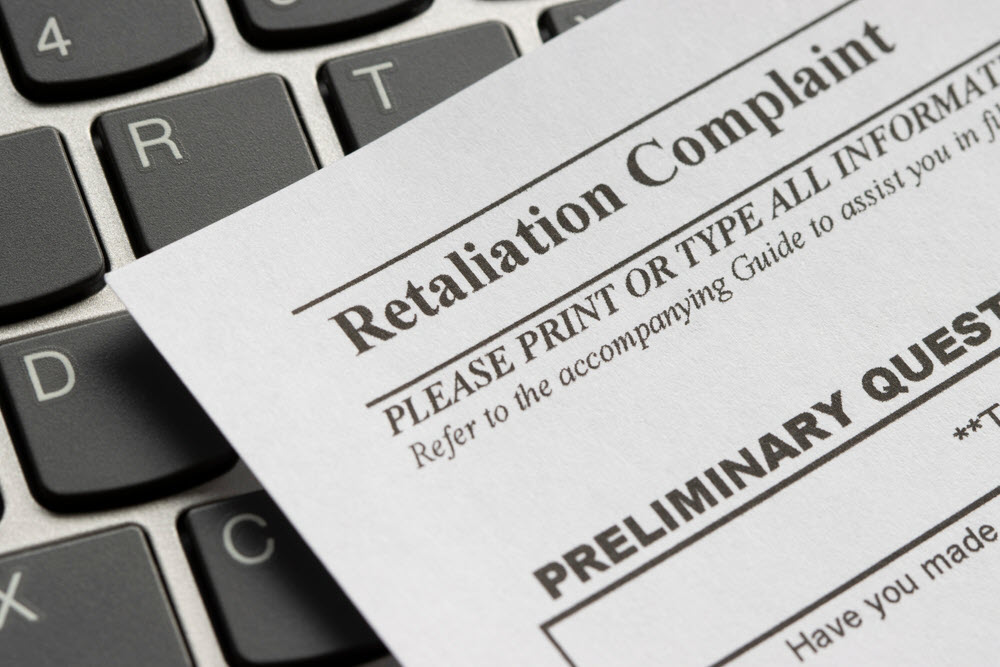
At the Law Office of Joseph Richards, P.C., our Inland Empire workplace retaliation lawyers are aggressive, experienced, and justice-driven advocates for employees who were unlawfully punished by an employer after engaging in a protected activity. Federal and state laws protected workers against retaliation. If you believe your rights were violated, you should consult with a professional. Call us at (888) 883-6588 to set up a free, fully confidential consultation with a top-rated employee rights attorney.
Employees have critically important workplace rights under federal law and state law. Key laws include Title VII of the Civil Rights Act of 1964, the Fair Labor Standards Act (FLSA), the California Fair Employment and Housing Act (FEHA), and much more. These laws allow workers to engage in protected activities. Some examples of protected activities include:
You should not be punished for engaging in a legally protected activity. As defined by the Equal Employment Opportunity Commission (EEOC), retaliation is an illegal practice whereby employers take unfavorable action against a worker because that worker engaged in protected activities. Sadly, retaliation is a common problem. It is the most common basis cited in federal EEO claims.
To prove retaliation, an employee must establish that they were subjected to an adverse employment action due to their protected activities. For the purposes of federal law and state law, the term adverse employment action is defined relatively broadly. In effect, it means some form of negative employment action that constitutes a punishment. Some specific examples of adverse employment actions include:
A central aspect of bringing a retaliation claim is establishing the nexus between a protected activity and an adverse employment action. An employee must be able to provide evidence that proves that they faced an unfavorable employment action, at least in part, because of the fact that they engaged in a protected activity. These are complicated cases. All retaliatory actions should be investigated by an experienced California employment law attorney.
Retaliation is a legal violation by itself. It can be pursued as its own cause of action and it can also be pursued as one aspect of a more comprehensive legal claim. For example, imagine that an employee at a large construction company in the Inland Empire complained about race discrimination to their immediate supervisor. One week later, that employee was fired from their job. They have the right to bring a claim for both the initial discrimination that they were complaining about and for retaliation.
As these are separate legal causes of action, it is possible that the employee could prevail in both of their claims or in only one. Perhaps an investigation reveals that there is insufficient evidence of racial discrimination. Even if that were the case, the employee could still have a viable legal claim for retaliation. A worker has a right to report discrimination without facing any adverse action. The employer’s retaliation is its own separate legal claim.
While there are certainly some exceptions, the reality is that most employers and human resources (HR) departments are broadly aware of retaliation laws. Few employers will openly admit to retaliating against an employee who engaged in a protected activity. They understand that doing so is illegal. Instead, an employer is more likely to come up with a “pretextual” reason to justify the adverse employment action that they took against a worker. In this context, a pretextual reason is a non-discriminatory (but false) reason that an employer can use to try to justify their actions.
As an example, imagine that a worker at an office building in Orange County, California was subject to racial discrimination from an immediate supervisor. The employee reported the matter to his company’s HR department. Two weeks later, the employee was terminated from his position. If that employee was fired, even in part, because he reported discrimination, that constitutes unlawful retaliation. However, his employer may try to come up with a pretextual reason to justify the termination. For instance, the employer may claim that this worker was removed purely for “performance reasons.”
Your workplace rights only exist to the extent that you can use them. Retaliation laws are critically important as they help to ensure that employees can actually access their rights. Sadly, illegal retaliation by employers remains a serious problem. Our founding attorney Joseph E. Richards is an experienced employee rights advocate with the professional experience needed to take on retaliation claims. Among other things, our Orange County & Riverside County retaliation attorneys will:
At the Law Office of Joseph Richards, P.C., our Inland Empire employer retaliation lawyers have the skills and experience to handle all types of workplace retaliation claims. If you or your loved one faced adverse employment action after engaging in a protected activity, we may be able to help. Give us a call at (888) 883-6588 for a free initial consultation. We handle employer retaliation cases in Orange County, Riverside County, and San Bernardino County.
Schedule a Free and Confidential
Consultation to Discuss Your Case

Contact Us Today at to Schedule
A Free Initial Consultation